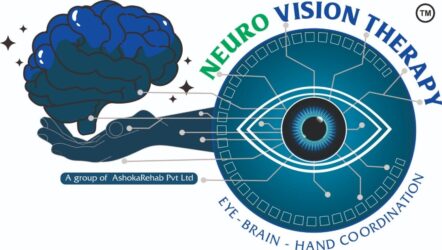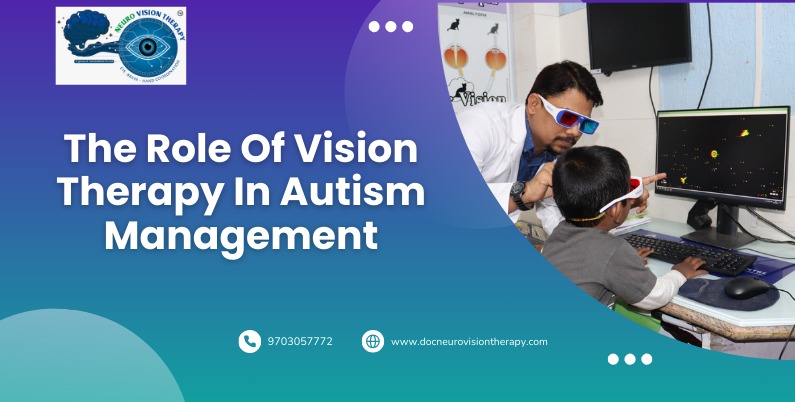
Brain injuries can have a profound impact on various aspects of health and functionality, including vision. Vision problems resulting from brain injuries can range from subtle disturbances to significant impairments. Understanding these issues, exploring ways to improve vision, and discovering targeted therapies can offer hope and recovery.
How Brain Injuries Affect Vision
The brain and eyes are intricately connected, with several brain areas involved in processing visual information. When a brain injury occurs, it can disrupt the normal processing of visual signals, leading to a range of vision problems. These issues can result from trauma to the brain itself or from damage to the neural pathways that connect the brain to the eyes.
Vision Problems After Brain Injury
Visual Field Loss :
- One of the common vision problems after a brain injury is the loss of vision in part of the visual field. This can occur due to damage to the brain's occipital lobe or the pathways that transmit visual information. Individuals might experience difficulty seeing objects on one side or may have a "blind spot" in their visual field.
Double Vision (Diplopia) :
- Brain injuries can affect the muscles that control eye movement or the neural pathways responsible for coordinating these movements. As a result, individuals may experience double vision, where two overlapping images of a single object are seen. This can be particularly challenging and disorienting.
Visual Impairment :
- Some brain injuries can lead to more generalized visual impairment, such as blurred vision or decreased visual acuity. This can occur if the areas of the brain responsible for focusing and interpreting visual information are affected.
Difficulty with Visual Processing :
- Brain injuries can disrupt the brain's ability to process visual information accurately. This might manifest as difficulty recognizing faces or objects, trouble with depth perception, or issues with spatial awareness.
Photophobia :
- Sensitivity to light, or photophobia, can also occur after a brain injury. This condition can make bright lights uncomfortable or painful and can interfere with normal daily activities.
Visual Agnosia :
- This is a rare condition where a person has difficulty recognizing or interpreting visual stimuli despite having intact vision. It occurs when the brain's higher-level visual processing areas are damaged.
Improving Vision After Brain Injury
The potential for improving vision after a brain injury depends on the severity of the injury, the specific areas of the brain affected, and the overall health of the individual. Here are some common approaches used to enhance visual function following a brain injury:
Neurorehabilitation:
This involves a range of therapeutic activities designed to retrain the brain and improve cognitive and sensory functions. Neurorehabilitation can include visual exercises, cognitive therapies, and other interventions aimed at enhancing visual processing and coordination.
Vision Therapy:
Specialized vision therapy programs can help address specific vision problems resulting from brain injuries. This therapy typically involves exercises and activities designed to improve visual skills, such as tracking, focusing, and visual perception.
Occupational Therapy:
Occupational therapists can work with individuals to help them adapt to vision impairments in daily life. This might include using assistive devices, modifying the home environment, and developing strategies to cope with vision-related challenges.
Medical Treatment:
In some cases, medical treatment may be necessary to address underlying issues contributing to vision problems. This could include medications to reduce inflammation or surgery to repair damaged structures.
Adaptive Technology:
Assistive technologies, such as magnifying devices or screen readers, can help individuals with visual impairments perform daily tasks and improve their quality of life.
Conclusion
Brain injuries can significantly impact vision, leading to a variety of problems such as visual field loss, double vision, and difficulty with visual processing. However, there is hope for improvement through targeted therapies and rehabilitation. Ashoka Neuro Vision Therapy offers a specialized approach that leverages the brain’s ability to adapt and reorganize, providing a promising path toward recovering visual function and enhancing overall well-being.
If you or someone you know is experiencing vision problems following a brain injury, exploring options like Ashoka Neuro Vision Therapy could be a crucial step toward regaining visual capabilities and improving quality of life.
Our Mission
We work collaboratively with each child to strengthen visual skills, improve attention and concentration, and enhance overall visual comfort and efficiency.
Contact :
Phone: +91 97030 57772
Email: neurovisiontherapy2023@gmail.com



